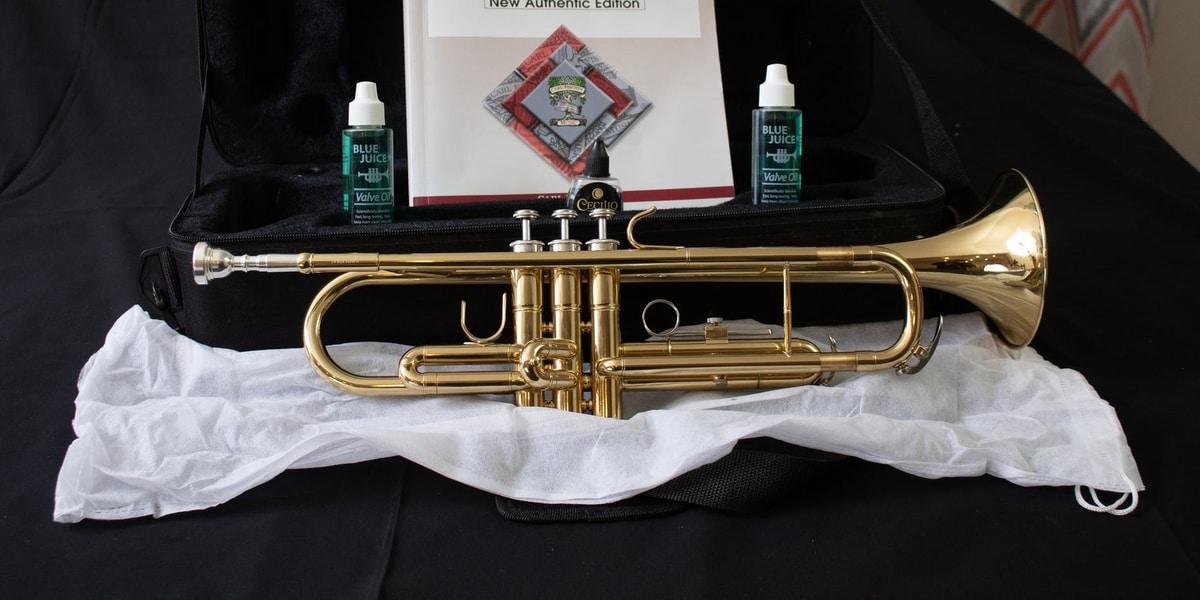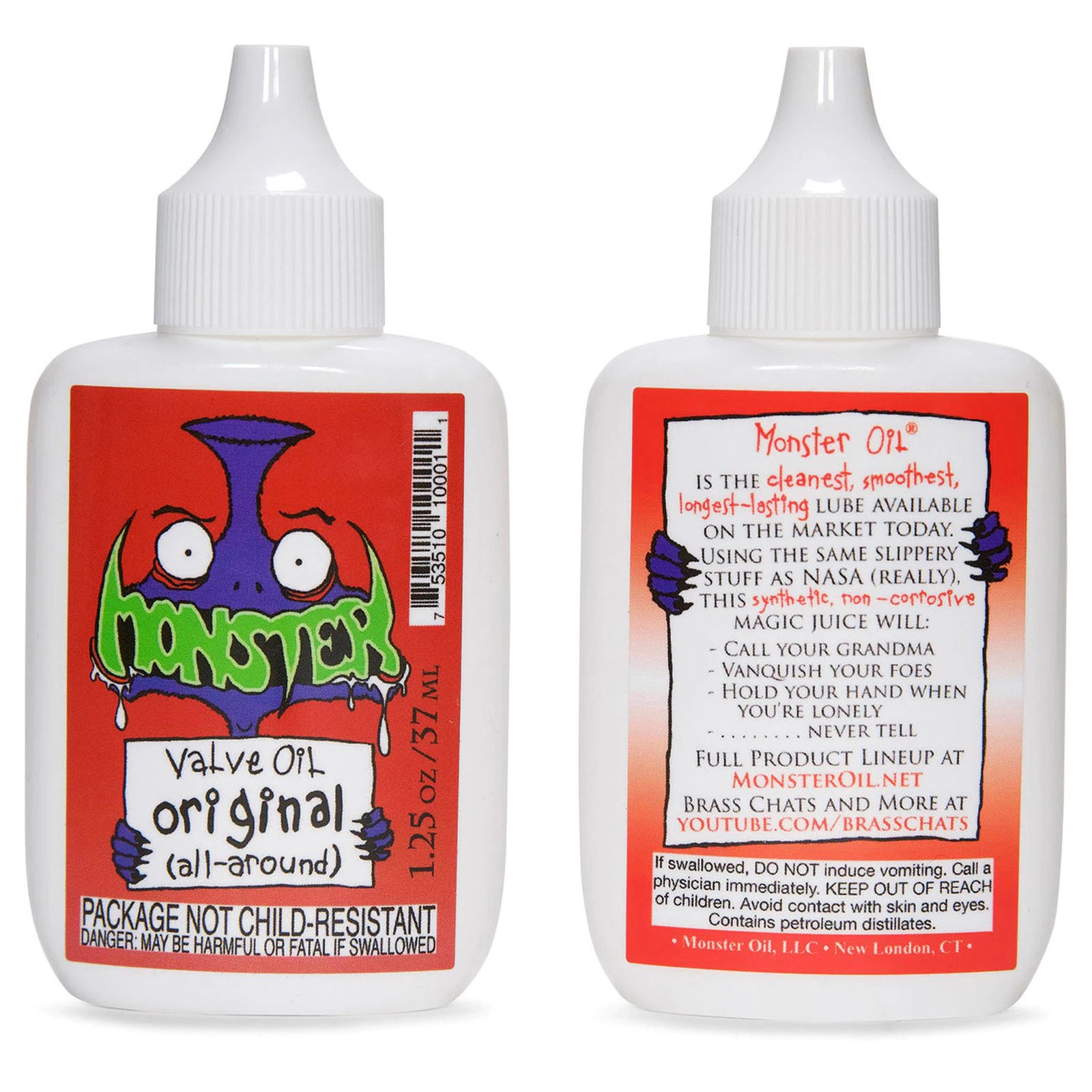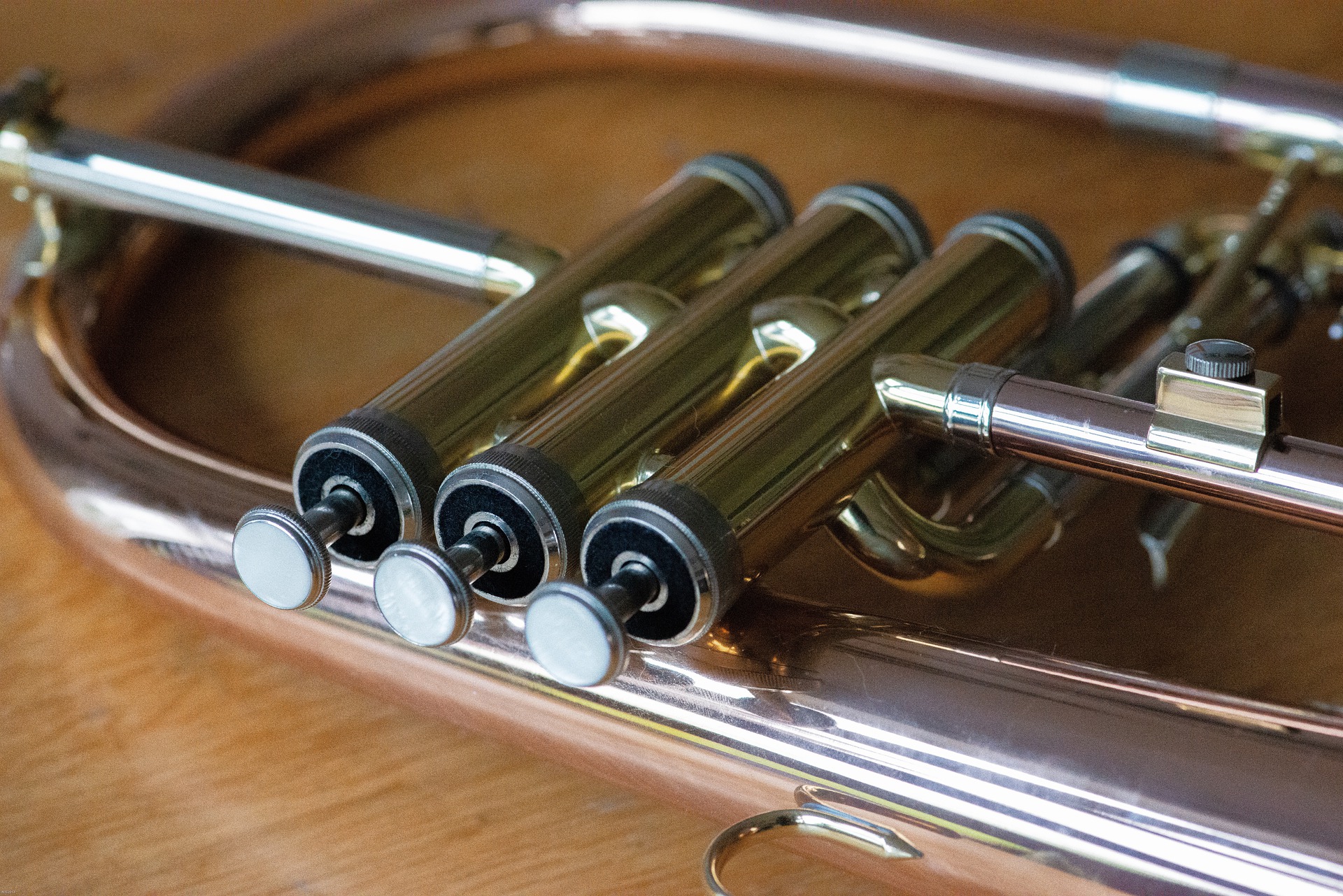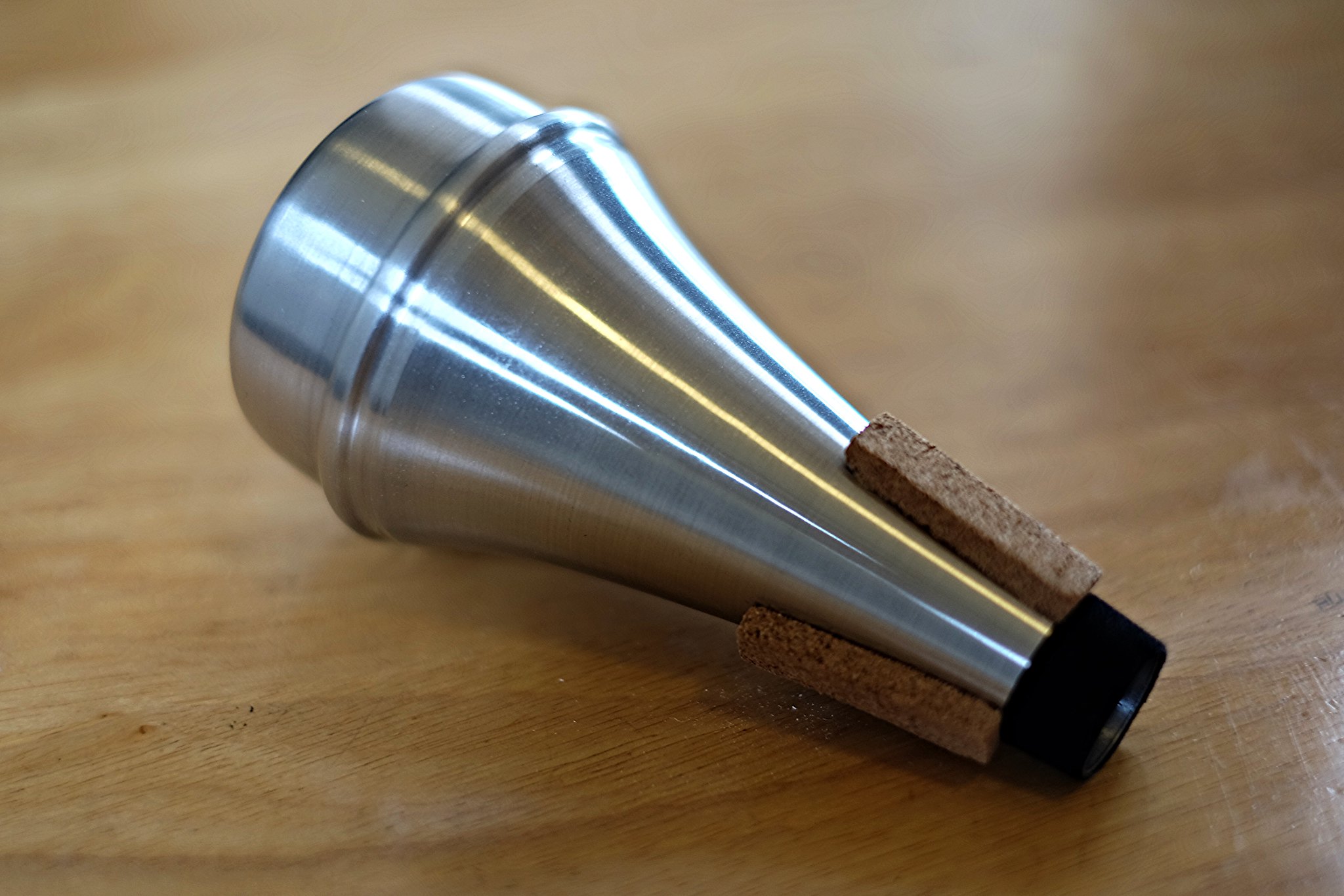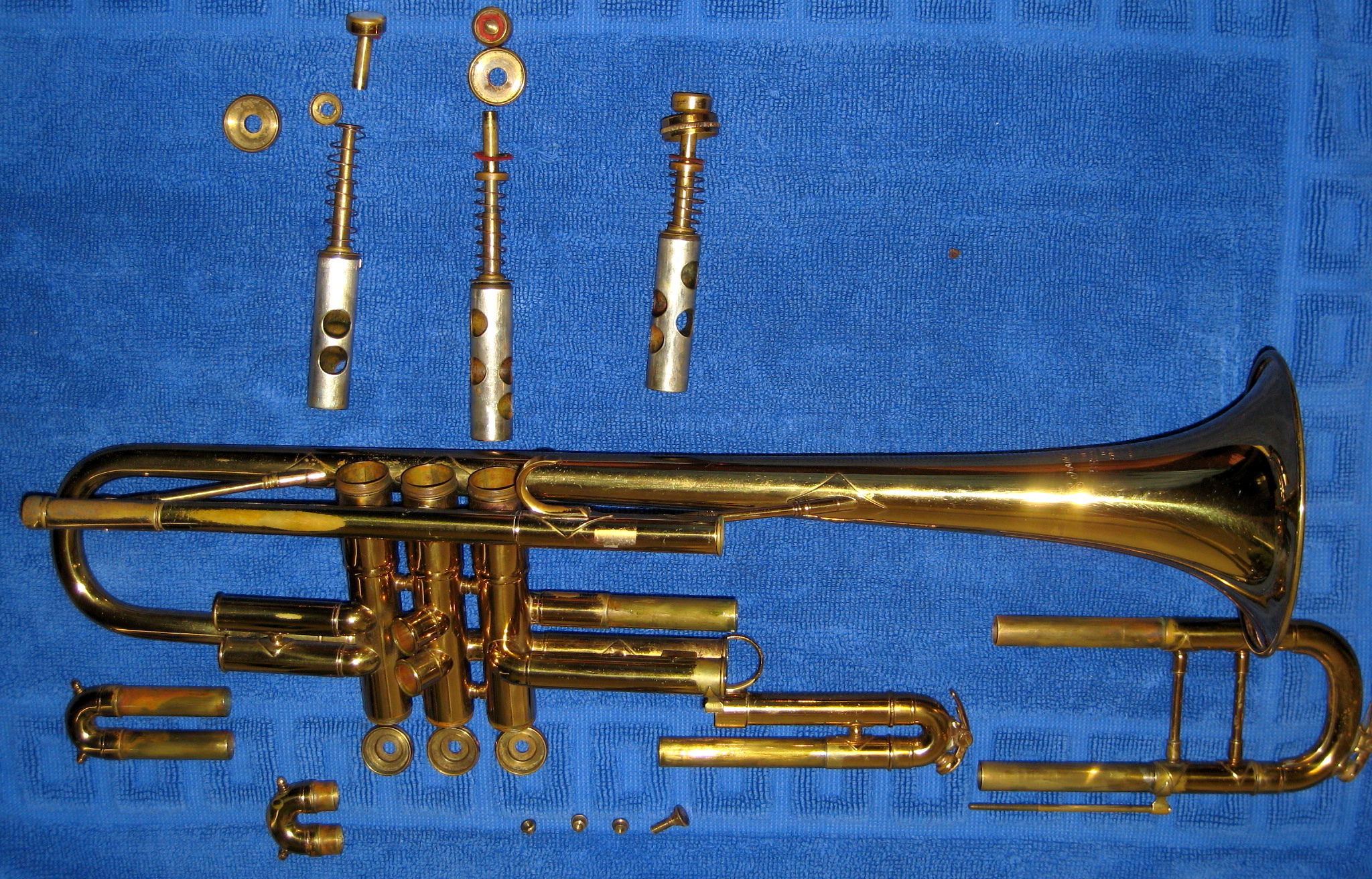I'll start off by saying that there are probably about as many opinions on the best trumpet valve oil as there are trumpet players.
And that's because one type of valve oil may work perfectly on your buddy's instrument, but not so great on your own. And there are a few reasons for that.
But before we dive into wonderful world of valve oils, I know that some of you just want a quick recommendation for your first valve oil. You don't have time to learn about different viscosities, and just need to pick something quickly.
Curious how to apply valve oil properly and how to best take care of your valves? Check out our article on trumpet valve care and maintenance.
Our Choice: Monster Valve Oil
In a competitive field of valve oil choices, what stands out about Monster?
I really think the underlying base oil they selected makes a huge difference. While many of the base oils other companies have used have been around for decades, the Monster company decided to partner with a supplier with high-end contracts within the aerospace industry. They weren't simply a brass valve oil supplier, these were the big guys with high end industrial applications.
What makes the Monster team special?
Take your pick. Three trumpet players from the U.S. Coast Guard Band, the products are manufactured in the U.S., the fun marketing, and the amazing customer service. It feels funny talking about amazing customer service when it comes to a product as (relatively) small as a bottle of valve oil. But when it comes down to it, you're trusting the daily performance of your trumpet to the quality of your valve oil, so you want to work with a company that will make it right should problems arise.
Which Monster Oil Is The Best For Me?
Monster Oils manufacturers three main valve oils, something we see in common with other brands like Hetman. The three types of valve oil vary by viscosity, and are branded as "Original," "Faster," and "Smoother."
If this is your first time using Monster, I'd recommend checking out Original. Chances are this will be the best fit for your instrument. Faster is designed for newer, close-tolerance valves, therefore the oil is thinner than the original formulation. And on the other end of the spectrum is Smoother, which is the heaviest formulation, designed for older instruments that have more space between the valves and the casings.
Each of the three Monster oils are synthetic. The number one advantage that users of Monster talk about is how "silky smooth" the valves feel, even compared to other quality valve oils.
Additionally, because the oils are synthetic, you'll notice you don't have to apply valve oil as frequently.
Give Monster a try to see how smooth and fast your valve action can be!
Characteristics That Affect Valve Oil Choice
Valve oils themselves are relatively simple formulations. They consist of the base oil as the lubricant, a solvent for cleaning power and to achieve the correct viscosity, and perhaps one or two more ingredients to prevent corrosion.
What does matter is the quality of the ingredients and the proportions that are used.
When it comes down to it, the singular purpose behind valve oils is to provide a layer of lubricant that sits between the piston and the valve casing, to protect against contact between the piston and casing.
And our primary goals are to be able to find a valve oil that works for us, our instrument, provides for fast valves, and doesn't require constant reapplication.
Here's what I've found in my experience:
-
Most trumpet players have a favorite or preferred valve oil
-
For those that don't have a preferred valve oil, they probably aren't dissatisfied with their current valve oil
-
Most trumpet players would agree that it comes down to personal preference.
Assuming that those three statements are true (or mostly true), what are the factors that influence valve oil choices?
Petroleum Vs. Synthetic Valve Oils
Petroleum valve oil is comprised of molecules of varying sizes. This differs from synthetic valve oils which contain molecules of the same size.
With petroleum oil, the smaller molecules evaporate more quickly, leaving the larger molecules behind.
Some trumpet players report this makes their valves feel more sluggish, and requires more frequent application of valve oil in order for them to feel smooth.
Petroleum-based oils tend to have that "oily" smell as well. Like many others, I was a fan of Blue Juice for many years, but I love the odorless nature of synthetic oils compared to petroleum.
I also have found that there tends to be more residue buildup associated with using petroleum oils.
For the average person, I would recommend synthetic over petroleum valve oils for the aforementioned reasons.
But, it's fair to note that many players have been getting along for decades with Al Cass and Blue Juice and happily continue to use those products.
Viscosity Of The Oil
Many brands offer multiple oil selections based on the viscosity (or thickness) of the oil. Hetman is a popular brand that, like Monster, has released three different oils: Hetman 1: Light Piston which is formulated for close tolerance valves Hetman 2: Piston, which is your standard go-to Hetman 3: Classic Piston, for piston valves with greater than average clearance
For most players selecting a valve oil for the first time, the middle/original viscosity is usually the right choice unless dealing with an older instrument.
Your Saliva
Gross as it may sound, the enzymes in your saliva can get mixed up in your valves, and depending on the formulation of the oil, may react differently with your instrument.
The most important takeaway though is that you should regularly clean your instrument (not just oil) it, to remove any unnecessary buildup on the valves or casings.
Brand Valve Oils
If finding the best quality valve oil for your horn isn't a big deal, and you prefer to go with whatever is the cheapest and most convenient, there's nothing wrong with purchasing "brand loyal" valve oil.
Most of the larger trumpet manufacturers have their own valve oils as well, including Yamaha, Bach, Getzen, and Holton to name a few.
Switching Valve Oils
Let's say you have been a regular user of a particular brand of valve oil. Then you find yourself at marching band camp, or right before a concert, and you realize you don't have your own valve oil with you.
You ask a buddy to share their valve oil with you. Awesome! They let you borrow their valve oil which you liberally apply to your pistons.
The only problem is, as you work the oil in, you find that your valves are still sluggish. Perhaps even more sluggish then they were before you applied the oil.
Wait, that's not supposed to happen!
Unfortunately, switching between brands, synthetic vs. petroleum, and different viscosities can result in slower valves. It might seem counterintuitive; after all, we just applied oil to reduce the friction in our valves.
It's important to remember that certain types of oil are incompatible with one another.
To avoid any difficulties, I always recommend that you keep your own supply of valve oil handy and that you have a backup supply of the same brand.
If you are considering switching valve oils, make sure to thoroughly clean your valves before applying the new oil.
